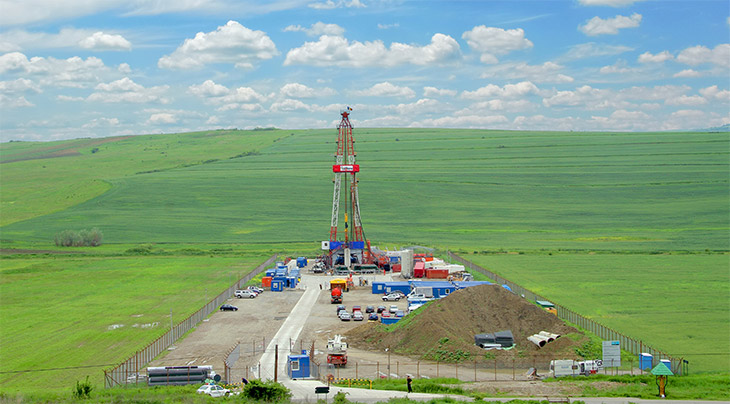Representatives of the US giant Chevron confirmed that it would withdraw from Romania and waives the shale gas exploitation operations, after publications Bloomberg and The Wall Street Journal have announced this a few days ago, citing company officials.
“In 2014, Chevron Romania has completed the exploration activities in the Barlad concession and a 2-D geophysical survey conducted in two of the three concessions in the Dobrogea region. Chevron Romania confirms the intention to abandon its plans for these concessions 2015” , told company representatives to Mediafax.
The project in Romania cannot compete with other investment opportunities in the global portfolio.
They added that it was a business decision made after evaluations of the project in Romania, which cannot currently compete in a favorable way with other investment opportunities in the global portfolio of Chevron.
Giving up the operations in Romania occured because of similar announcements on the withdrawal of the americans from several projects in Ukraine and Poland. Thus, it can be concluded that the European projects of exploration and exploitation of shale gas lost in the competition for funding to the operations in other parts of the world.
The decision of the american company was communicated shortly after a visit by Prime Minister Victor Ponta to Washington, during which the prospects of energy cooperation were discussed between Romania and the United States.
The announcement can be considered a success for NGOs and anti-fracking activists, that have strongly criticized insistently and sometimes violently, Chevron operations in Romania. After Chevron received in October 2013 the building permit for the placement in Vaslui of the first shale gas exploration well in Romania, there have been several violent protests of the locals in Pungesti.
Meanwhile, even for the authorities, the withdrawal of Chevron is a reason to relax. Along with other exploration and production companies active in Romania, Chevron has faced a lack of support from the institutions responsible for the compliance and implementation of concession contracts.
Unclear prospects for the taxation system of the companies from the oil and gas industry
The lack of correlation between Bucharest officials and representatives of local authorities has led to many disputes that delay or block access of the companies to the land concession in order to achieve exploration.
To this the prospect of unclear fiscalization system for the oil and gas industry is added. After the introduction of the abrupt and unilateral tax for special constructions in 2014, the modification of the royalties was postponed. The disclaimer of the Government towards the Parliament makes a precise date for adopting these tax changes even more uncertain.
The results of the exploration operations remain unknown
The third type of factors influencing the decision of Chevron itself concerns the exploration and production prospects of the concessions in the portfolio.
Chevron completed in July 2014 the first exploration well in Romania, in the town Siliştea-Pungesti, Vaslui county, after two months of drilling to depths of 3,000 meters.
The American company owns three other environmental agreements in Vaslui county for shale gas exploration in areas such as Păltiniş-Bacesti, Popeni-Găgeşti and Puiesti. The company also has obtained last year and the second building permit for the placement of a new exploration well in the area held at Puiesti.
“The results of the works in Romania will be handed over to NAMR and will remain in state custody. The confidentiality of such information is maintained in accordance with the laws of Romania,” added Chevron representatives.
The fact is that in other circumstances – higher international prices and a stronger local support – the company would have carried out further works, that would provide a clearer picture of potential of the available shale gas deposits. They are still an unknown in the absence of new works in the field, that would confirm or not the International Energy Agency’s estimates that assigns Romania, in 2011, a volume of 1.444 billion cubic meters of recoverable technical shale gas, that is undiscovered, but that could be accessed with the existing technology.
Why did Chevron leave
- difficult international context – the oil price below $60 a barrel
lack of local support – protests and fiscal uncertainty
unconvincing results of exploration – after seismic surveys and digging a new well

